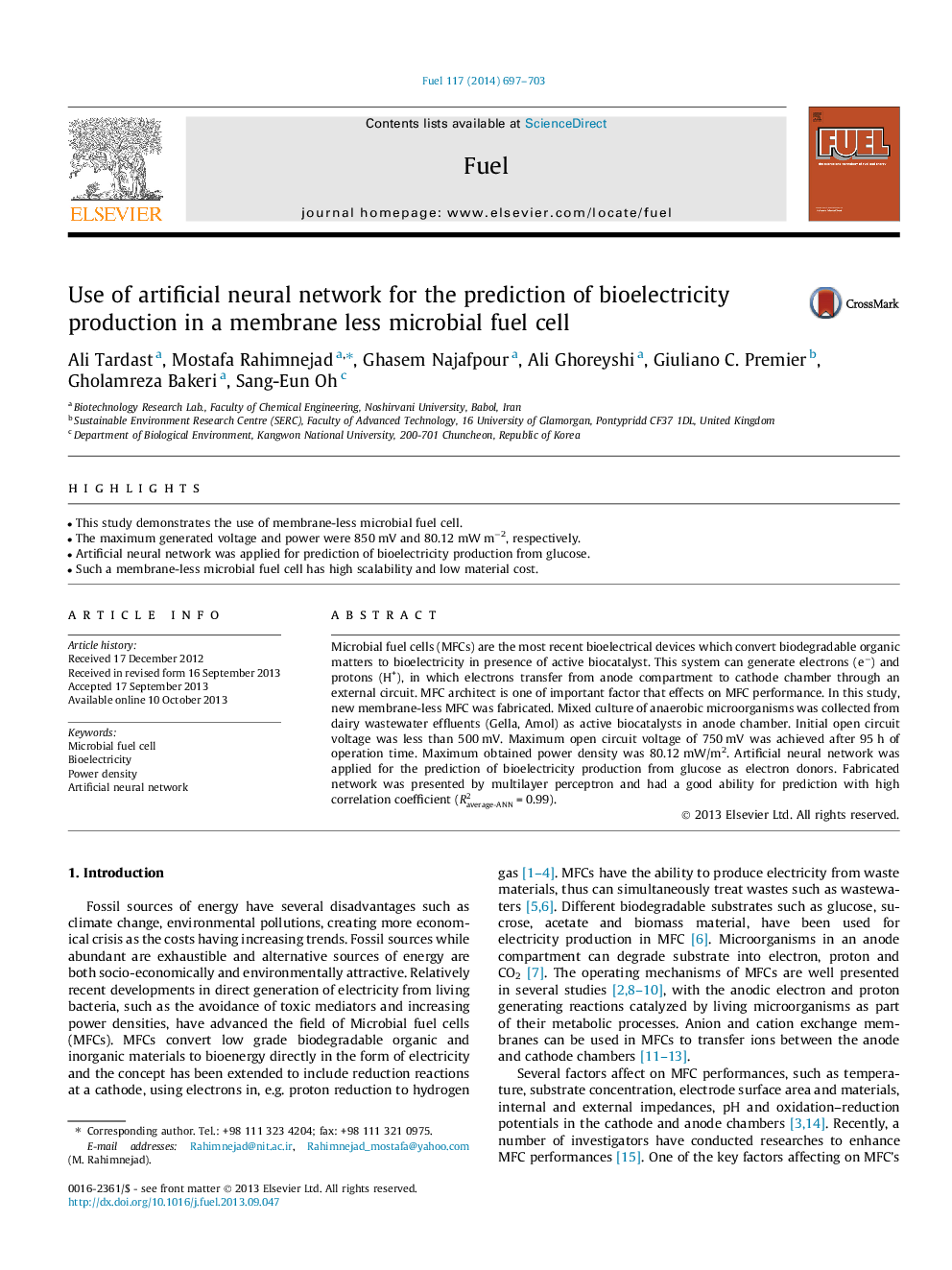| Article ID | Journal | Published Year | Pages | File Type |
|---|---|---|---|---|
| 10272085 | Fuel | 2014 | 7 Pages |
Abstract
Microbial fuel cells (MFCs) are the most recent bioelectrical devices which convert biodegradable organic matters to bioelectricity in presence of active biocatalyst. This system can generate electrons (eâ) and protons (H+), in which electrons transfer from anode compartment to cathode chamber through an external circuit. MFC architect is one of important factor that effects on MFC performance. In this study, new membrane-less MFC was fabricated. Mixed culture of anaerobic microorganisms was collected from dairy wastewater effluents (Gella, Amol) as active biocatalysts in anode chamber. Initial open circuit voltage was less than 500Â mV. Maximum open circuit voltage of 750Â mV was achieved after 95Â h of operation time. Maximum obtained power density was 80.12Â mW/m2. Artificial neural network was applied for the prediction of bioelectricity production from glucose as electron donors. Fabricated network was presented by multilayer perceptron and had a good ability for prediction with high correlation coefficient (Raverage-ANN2Â =Â 0.99).
Related Topics
Physical Sciences and Engineering
Chemical Engineering
Chemical Engineering (General)
Authors
Ali Tardast, Mostafa Rahimnejad, Ghasem Najafpour, Ali Ghoreyshi, Giuliano C. Premier, Gholamreza Bakeri, Sang-Eun Oh,
